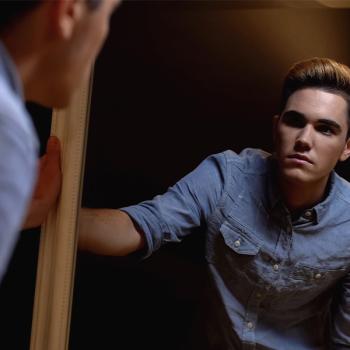Neo is a prefix signaling a “new” form or a revival of an old one.
Scarecrows are supposed to represent the real thing. They are meant to stand immovably in each of the fields they’ve been placed and protect it from unwanted invaders. They are a fantasy of what is meant to be. They are a perversion of the real world. It has everything but the heart it requires to sustain life.
There has been a hip new influx of re-ideology. Or neo-ideologies. So for example, there used to be fascism, but now there is neo-fascism. Or how there used to be evangelical, now there is a neo-evangelical movement in some churches. Along with the neo-evangelical, there is also a neo-monastic movement that has followed closely after. We could go on, but I hope this gives you a preview of this neo-movement of old philosophies. Its much like the straw men, they look like what they represent, but they depend on what is behind them to be informed.
This isn’t simply dissecting Christian neo-ideologies, this is challenging the concept of ‘neo-ing’ anything. If we are a society that embraces change than we should be willing to allow space for the new changes to lead us rather than us attempting to slow its progress. This isn’t to say that these changes won’t take time, but there is tendency out of either fear or the addictive need to control what we don’t know, to inform the progress of change. The problem with this approach is that it isn’t change if we’re in control of it.
We sometimes look at change as this gradual thrust towards something or somewhere. But, what if change was discovered rather than controlled? Rather than constantly trying to control the direction (and yes, there are times when we need to do so) we allow change to lead us?
This is an immanent kind of change that we get to work with but not necessarily manipulate. With these neo-ideologies there is a dependancy upon what is before us rather than what is ahead of us to tell us how we should move forward. This also gives us the power to creatively/forcefully direct its paths because we manipulate what is behind us to a certain extent.
The issue with that is we will only move forward as far as the history of that subject will allow. We are then bound by history rather than informed by the future. This is why we must be careful when introducing things like neo-ideologies, because it is incredibly dependant, almost like the alcoholic is to his beer bottle.
If we continue onto the path of neo-ideologies we will have nothing more than strawmen filling the history books we left behind. I understand this approach is scary especially if we see history as something we are under, part of, or dependant upon. Or history as the Big Other. But, what if history wasn’t any of those things?
We need a new form of history. A new way to see it, address it and live it.
What if history is now? This moment. What if like the ancient eastern religions thought, time was an event, it was when things happened that time was here. What if its an ethic, something we perpetuate out of ourselves into life? If time is an event rather than something that has always been happening, than progress is the event we have been waiting for.
Think of Christ on the Road to Emmaus. Christ who was completely recognizable is now completely unrecognizable. Christ is displaced from Christ. Essentially, the Christ before the Cross no longer exists because this New Christ has been resurrected. Or as one of the early church authors once wrote, ‘the old has gone, the
new has come’.
There is a process of estrangement from our history that needs to occur. Neo-Ideology tries to hold on to a bit of the past and attempts to stretch into the future but can only reach till now because of its direct connection to the past. As long as there is a dependancy upon our past, we will only be able to progress into the now.
How does this help us practically?
I think it speaks into the heart of fear we have become victims to for centuries. It empowers us to paint with a whole new brush with literally endless possibilities. It is a post-structural approach to living life and encountering the Divine. It is a complete 180 degree turn from everything we once knew, so it will challenge us, it will change us. So, I think what it will do, is actually put feet to the idealistic notion when we say ‘I like change’. If we completely change our minds, than we can truly be changed. Like Christ was on the road to Emmaus.

















